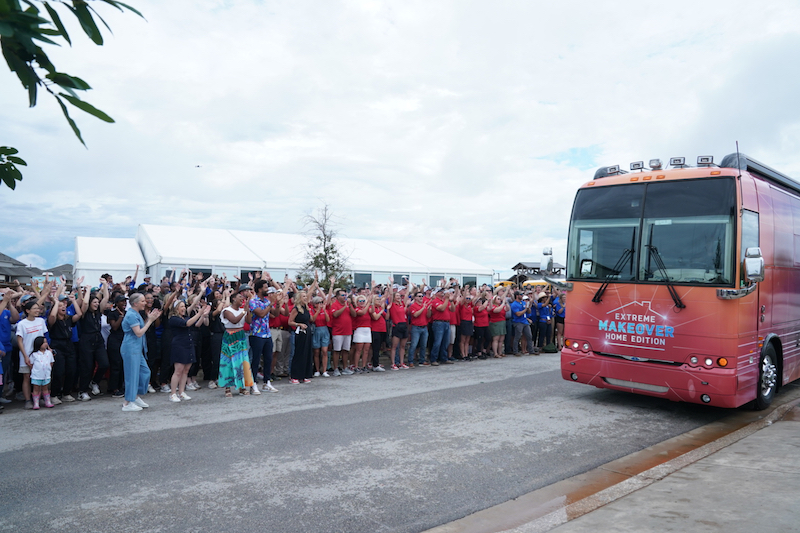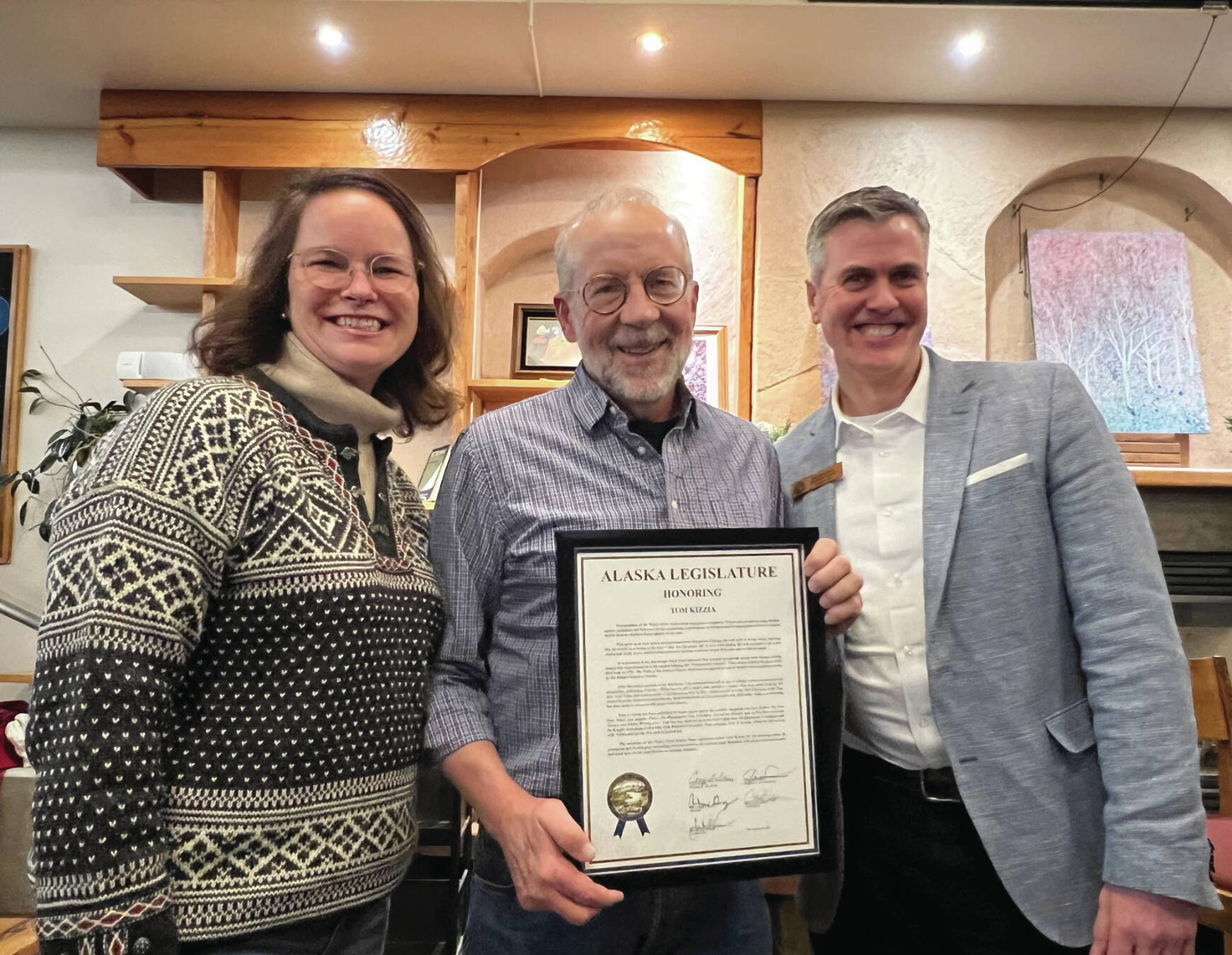New Hampshire
McKenzie 4TDs doubles season total and Rhode Island beats New Hampshire in OT

KINGSTON, R.I. — Ja’Den McKenzie ran for four touchdowns — the final being the game-winning score — and Rhode Island beat New Hampshire 34-28 in overtime Saturday.
McKenzie ran for 134 yards on 15 carries and scored on runs of 10, 4 and pair of 1 yarders. He entered the game having rushed for four scores on the season for Rhode Island (5-4, 3-3 Coastal Athletic Association).
The Wildcats’ Max Brosmer threw a 13-yard score to Logan Tomlinson with 9:06 remaining in regulation to end an 11-play, 77-yard scoring drive that lasted close to five minutes. The two-point conversion made it 28-all.
The Wildcats missed a field goal on their overtime possession.
Brosmer finished 41-of-61 passing for 456 yards and two scores for New Hampshire (4-4, 2-3).
___
Get alerts on the latest AP Top 25 poll throughout the season. Sign up here

New Hampshire
Pet squirrels and racoons? N.H. lawmakers say some may be OK – The Boston Globe

After learning about the fate of Peanut and Fred, Representative James Spillane took action to make sure their story isn’t repeated in the Granite State. This legislative session, the Deerfield Republican is proposing legislation that would allow the ownership of some squirrels and raccoons.
“It gave a black eye to New York and we don’t need to get a black eye in New Hampshire,” he said.
“My fear is somebody’s going to move into the state with a pet, and we’re going to tell you, ‘You can’t get veterinary care, and you’ve got to pretend you don’t have that pet,’” he said.
Spillane said his bill, which has the backing of several other Republican lawmakers, provides two paths to legal ownership of pet raccoons and squirrels, including for people who move into New Hampshire from states that permit the animals as pets, and allowing them to become pets after being rehabilitated by NH Fish and Game.
But, Spillane said, his bill stops short of making all ownership of pet raccoons and squirrels legal. It still wouldn’t allow people to purchase the animals at a pet store, to breed them, or to capture them from the wild.
“We’re in the same position with these as we were with ferrets about 15 years ago,” Spillane said.
Raccoons and squirrels aren’t the only critters lawmakers are eyeing in 2025. A proposal from
Democratic Senator Donovan Fenton of Keene would proclaim the Virginia opossum as New Hampshire’s official state marsupial.
The nocturnal critter, which is already the official state marsupial of North Carolina, can be found in New Hampshire and throughout much of North America.
This story first appeared in Globe NH | Morning Report, our free newsletter focused on the news you need to know about New Hampshire, including great coverage from the Boston Globe and links to interesting articles from other places. If you’d like to receive it via e-mail Monday through Friday, you can sign up here.
Amanda Gokee can be reached at amanda.gokee@globe.com. Follow her @amanda_gokee.
New Hampshire
Opinion: The untold story of DES’ new landfill siting rules

Eliot Wessler lives in Whitefield and works with a number of grassroots organizations in New Hampshire’s North Country.
New Hampshire’s Department of Environmental Services (DES) has the responsibility to balance the interests of landfill developers and the public. But the agency, under the thumb of outgoing Gov. Sununu, has leaned heavily in favor of the solid waste industry for years, and the New Hampshire legislature has too often gone along.
DES’ new landfill siting rules were approved at the Dec. 19 JLCAR (Joint Legislative Committee on Administrative Rules) hearing. DES provided JLCAR with just enough half-truths that it was able to ram home a version of the rules that was heavily influenced by landfill developers.
The stink from that hearing hasn’t abated. The written testimony in advance of the hearing consisted of virtually unanimous objection from scientists and crickets from the industry. As for the hearing, the 15-20 people who showed up to provide testimony opposed to DES’ rules were denied an opportunity to testify by an administrative maneuver engineered by two of the ten JLCAR members.
Given everything we now know about the risks of PFAS contamination from landfills, including the contamination of public water supplies near Pease, the hundreds of incidents of leachate mismanagement at Casella’s NCES landfill in Bethlehem, and Casella’s hubris in trying to push through permit applications to build a brand new mega-landfill (the GSL project), it’s appalling that DES’ new rules make it easier for landfill developers to build landfills wherever they want.
The most egregious thing DES did was to weaken the hydraulic conductivity standard compared to its original proposal. The industry lobbied DES to make the change, arguing that the stronger standard would make siting landfills harder. DES caved, despite overwhelming evidence that the weaker standard dramatically increased the risk of landfill contamination, and with no countervailing evidence that a stronger standard would prevent siting new landfills.
So now we’re stuck. DES’ standard is far weaker than the standard used in both Maine and Vermont. Moreover, it is weaker than all U.S. states that have such standards, as well as many foreign countries, including countries with extremely lax environmental rules such as India.
DES is required by administrative rules, enforced by JLCAR, to make decisions on the merits of the available evidence. In weakening the conductivity standard, DES offered assertions to JLCAR but provided no evidence that the conductivity standard weakening was based on merit. In fact, the evidence presented to JLCAR seems to confirm that DES reverse-engineered the standard so that permits for Casella’s GSL project could be greenlighted:
■DES argued that the old rules did not have a hydraulic conductivity standard, so the new rules are ipso facto more protective. That defies logic given that the standard is set so low that it virtually provides a permission structure for landfills to be sited in highly permeable soil.
■DES disowned a DES-sponsored soil permeability map that showed some 85% of the state has more suitable soils for landfill siting than the GSL site. But having disowned the map, DES produced no data or evidence of any kind regarding the distribution of soil permeability in New Hampshire.
■In DES’s own words, “NHDES staff asked other concerned members of the regulated community to provide information and documents to demonstrate …foreclosing… the siting of any new landfill or the expansion of any existing landfill, but the department did not receive any supporting documentation.”
■On the same subject, in DES’ own words, “Other commenters including several industry representatives commented that the initial values…would make it very difficult to site new landfills or to expand the existing landfills in the state. One industry representative referenced a statewide study that had been conducted for a private client that they claim showed this result. The representative was unwilling to share the document.”
With JLCAR’s acceptance of DES’ Section 800 rules revisions, DES may have won a pyrrhic victory. Outgoing Gov. Sununu is just about the last public official to think GSL is a good idea, and he will be remembered by many as a cheerleader for unneeded large engineering projects, including the albatross that is the Seabrook nuclear plant, and the ill-conceived Northern Pass transmission project.
With the inauguration of Governor-elect Ayotte in a few weeks, DES will be under new management. She has said that under her watch New Hampshire will modernize its landfill management practices, will not become the solid waste dump for all of New England, and that the GSL project will not happen.
In addition, given the heightened awareness in the New Hampshire legislature of the dangers from landfills, as well as heightened awareness that DES historically has not done nearly enough to faithfully fulfill its mission to protect public health and welfare, there is hope that through new legislation and tougher oversight, DES will be encouraged (or maybe forced) to re-focus on its mission.
New Hampshire
First Day Hikes draw crowds to NH trails for the New Year

Erica Laue and her family spent their New Years Eve snacking and playing Dungeons and Dragons with friends. But the next morning, they decided to hit the trails and catch the scenery at Monadnock State Park.
“I am so carb loaded and ready to go,” Laue said before they hit the trails.
They were among the crowds of solo hikers, couples and families who made their way to participating New Hampshire State Parks on Wednesday as part of the annual First Day Hikes. The state has been hosting these self-guided hikes each New Year’s Day for the past 14 years.
Officials at Monadnock State Park say they saw maybe 80 to 100 people roll through on Wednesday — some hit the Parker Trail, which was designated for First Day Hikes, while others set out for the top of the mountain. Other participating parks in New Hampshire included Odiorne Point, Pawtuckaway and Milan Hill. It’s also a tradition practiced at state parks around the country.
The Laues have been doing First Day Hikes for the past eight years, originally starting the tradition when they lived in Colorado. When they moved to New Hampshire, they were happy to find that the state offered these hikes, too. At the time, they had a 2-year-old and another child on the way — and it’s turned into a family tradition.
They’ve previously explored Bear Brook and Odiorne Point State Park. But this year, they met up with Laue’s sister, parents and extended family at Monadnock State Park.
“As a family, this is something we really love doing, and so this is one of the ways we spend quality time together,” Laue said, adding that the kids got their first backpacking kits for Christmas and the family is planning a hiking trip in the summer.

Roxanne Loudon, an avid hiker from Peterborough, was also on the trails with her kids and husband.
It was her fourth year of First Day Hikes, and she chose Monadnock State Park this year because it’s close to home and she enjoys the reservoirs and dam.
Over the years of participating in the tradition, she said she’s seen everything from porcupines in trees to pheasants on the trails. (She says pheasants are the ones to be concerned about, because they’ll chase you down.)
Loudon said she’s pretty horrible at holding New Year’s resolutions, but she has one in mind this year: keeping her phone off the trails. She says if you want to enjoy nature, ditch the phone, buy a camera and take it with you on the hike instead.
“Our goal this year is to get a landline, that’s our goal, that’s our resolution,” Loudon said. “And I know I can meet that.”
-
/cdn.vox-cdn.com/uploads/chorus_asset/file/25672934/Metaphor_Key_Art_Horizontal.png)
/cdn.vox-cdn.com/uploads/chorus_asset/file/25672934/Metaphor_Key_Art_Horizontal.png) Technology1 week ago
Technology1 week agoThere’s a reason Metaphor: ReFantanzio’s battle music sounds as cool as it does
-

 Business1 week ago
Business1 week agoOn a quest for global domination, Chinese EV makers are upending Thailand's auto industry
-

 Health5 days ago
Health5 days agoNew Year life lessons from country star: 'Never forget where you came from'
-
/cdn.vox-cdn.com/uploads/chorus_asset/file/24982514/Quest_3_dock.jpg)
/cdn.vox-cdn.com/uploads/chorus_asset/file/24982514/Quest_3_dock.jpg) Technology5 days ago
Technology5 days agoMeta’s ‘software update issue’ has been breaking Quest headsets for weeks
-

 World1 week ago
World1 week agoPassenger plane crashes in Kazakhstan: Emergencies ministry
-

 Politics1 week ago
Politics1 week agoIt's official: Biden signs new law, designates bald eagle as 'national bird'
-

 Politics7 days ago
Politics7 days ago'Politics is bad for business.' Why Disney's Bob Iger is trying to avoid hot buttons
-

 Business1 day ago
Business1 day agoThese are the top 7 issues facing the struggling restaurant industry in 2025


















